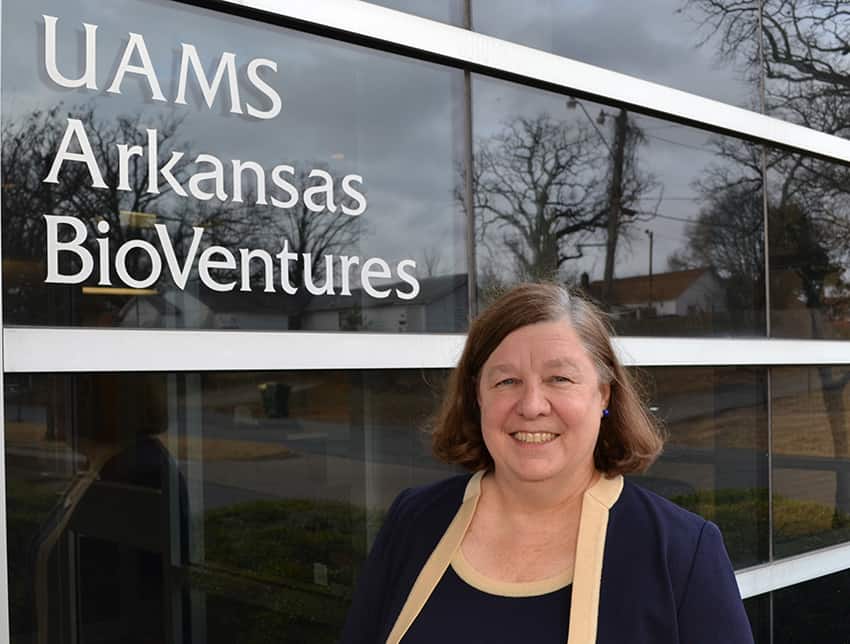UAMS BioVentures Changes to Nonprofit
| Jan. 11, 2017 | UAMS BioVentures of the University of Arkansas for Medical Sciences (UAMS) recently became a private, nonprofit limited liability company to give it more flexibility in using funds for the new companies it helps get started.
The University of Arkansas Board of Trustees approved the change in September. The nonprofit legal structure with 501 (3) c federal tax status was effective Oct. 1. After Jan. 1, BioVentures will be in full operation as a nonprofit and also will have a governing board of directors and an advisory board that will focus specifically on economic development.
“Many public universities put their technology transfer function into a nonprofit company or foundation for attaining all the benefits we’re seeking to have now with this new structure,” Chancellor Dan Rahn, M.D., said. “From past experience, I understand the necessity of having investable funds available to foster new companies and drive innovation.”
As a part of the change to nonprofit status, BioVentures has become a subsidiary of AR Health Ventures, a nonprofit holding company for participation in projects and initiatives like the Partnership for a Healthy Arkansas.
“UAMS and BioVentures share a common vision to leverage university intellectual assets derived from UAMS to foster, grow and sustain a robust knowledge-based economy,” said Nancy M. Gray, Ph.D., UAMS BioVentures director. “Becoming a nonprofit doesn’t give us more income. However, it gives us more freedom with how we can invest our intellectual property revenue. Additionally, as a private entity, we have a greater breadth of transactions into which we can enter, such as agreeing to co-invest with other investors, provide seed money to UAMS startup companies, or provide funds to UAMS researchers for intellectual property development.”
BioVentures both licenses the innovative technologies created and developed at UAMS while also incubating new businesses marketing and selling them. Through the companies BioVentures helps germinate and grow, it is increasing the access of people to advances in medicine and technology, making concrete the abstract ideas and innovations born in the university’s laboratories.
Gray said licensees won’t be paying any more money than before the change, but they will be paying it to the new nonprofit. Funds from those payments still will be available to the chancellor’s office and colleges in which the technologies were developed. However, they will be held within BioVentures until they have built up and then will be directed to specific uses defined in advance by each college’s dean.
By every key economic development measure, BioVentures is succeeding. More than 20 companies are active and supported by it. Together, the companies have attracted more than $115 million in investment and employ about 300 people. BioVentures manages 210 works or inventions that have resulted in or may result in patents.
BioVentures companies are a diverse mix of enterprises ranging from Safe Foods Corp. to Angel Eye Camera Systems, to cite two examples. Safe Foods’ antimicrobial agent Cecure is used by food processors and producers to cleanse food surfaces, which helps control food-borne pathogens and substantially extends the shelf-life of foods. Safe Foods has generated more than $4 million in royalties for UAMS, its College of Pharmacy and the inventors. Angel Eye Camera Systems develops and markets camera systems allowing parents and families to see and interact with their baby in the neonatal intensive care unit through live streaming video.
